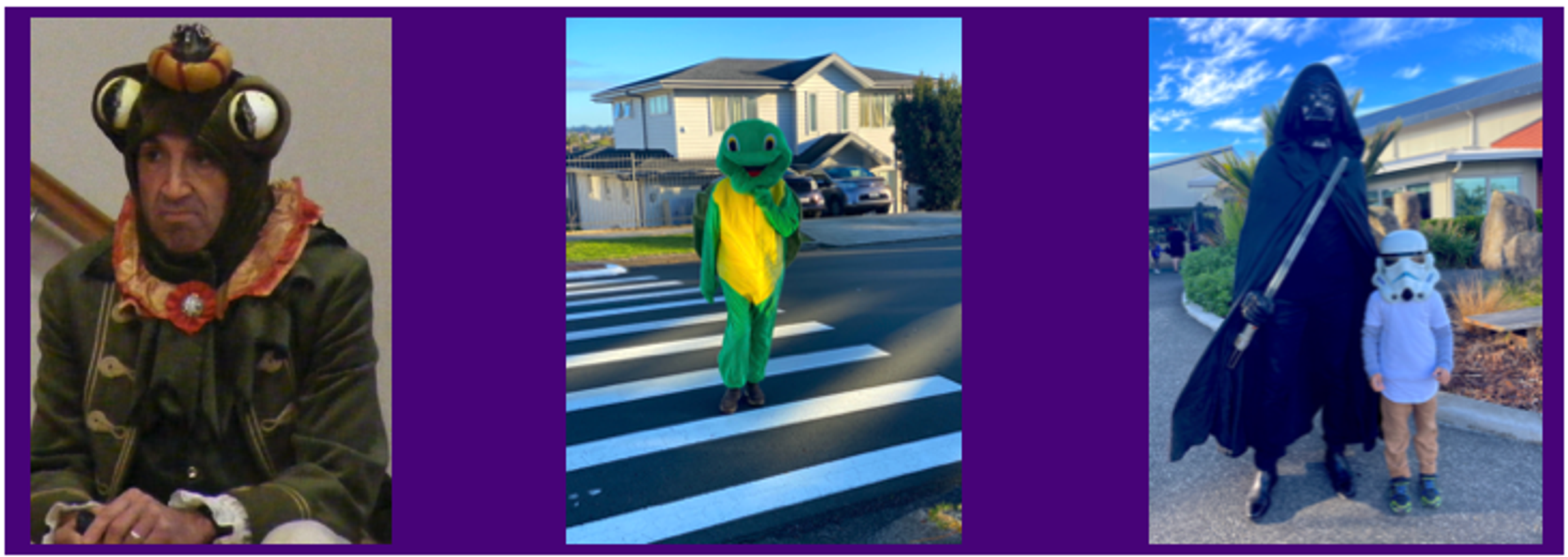Principal's Page

This week my page isn't mine; it's an article on parenting from the New York Times. It fits in well with this being the week of Zone Winter Sports Day and with our Thought For The Week focused on Failing Up.
It is quite long, and for that, I apologise. I do hope some of you find the time to read it and some of you find value in it. Thanks.
What’s wrong with having competitive kids?
Jessica Grose | nytdirect@nytimes.com
Comparison may be the thief of joy, but it’s also somewhat inevitable.
My most repeated parental cliché is “everything is not a competition.” I say it at least once a day when my children are doing something like racing down a path, jostling each other out of the way. It’s also a frequent refrain when one of my daughters declares that someone in her class is better at something than she is (long division, basketball, being taller). I usually add that if a skill is important to them and they want to improve, they need to work hard at it. My husband prefers the more poetic “comparison is the thief of joy.”
Both of my kids dismiss these admonitions. Typically my older daughter will respond, “Everything is a competition.” She tends to stymie me with questions and observations that reveal she is both personally motivated by competition and has her own ideas about its intrinsic value.
For example, earlier this year, my daughter described some kind of school-play situation where the biggest role was split up and parcelled out somewhat randomly between three students, which she declared “unfair.” Mind you; she wasn’t even participating in the play; she just observed the result and asked me: “What if some of those kids stink at acting? Shouldn’t the part be given to the best one?” I told her that the teachers were probably just trying to give everyone a chance to participate, and that’s a good thing. She’s only 9, so she doesn’t know the word “patronizing,” but I would say that’s how she felt about both the doling out of parts and my response.
That our philosophical maxims seem to have no effect on our children makes me want to take a step back. First, to look at how competitive impulses form among children and then ask myself: When I repeat this phrase, what am I really trying to teach them?
(In fairness to my kids, I should say here that I can be pretty competitive, too. I chose my fitness regimen largely because it’s based on a points system involving heart rate. I love to rack up points and see how many points everyone else is getting on the leaderboard because I want to be the girl with the most points. I am 40. I wouldn’t say I’m proud of this particular trait, but I’m not not proud of it.)
There’s a branch of psychology called evolutionary developmental psychology that comes out of Charles Darwin’s work, and according to that branch, competitiveness may have evolutionary origins. In the past, in scenarios with scarce resources, siblings competed to stay alive, “obnoxiously competing for survival,” as Professor Hunter put it. This coincides with something I’ve noted previously that, according to historical research, “hundreds of years ago, when child mortality was much higher, children under 5 with close-in-age siblings were more likely to die.”
Now, my kids aren’t racing each other in a zero-sum battle for survival, though my younger daughter, who is 6, seems to be getting more competitive with each passing month.
As with many traits, it’s very hard to figure out how much competitiveness is nature and how much is nurture — the literature, from what I can assess, is all over the place. Particularly when it comes to academic competition among kids, “this area of research is really difficult because there are no natural experiments,” said Hilary Levey Friedman, a visiting assistant professor of education at Brown University and the author of “Playing to Win: Raising Children in a Competitive Culture.”
But, Friedman said, kids are perceptive, and by elementary school, “they’re very good at discerning who is the fastest, who is the smartest, who is the best singer,” whether or not they’re being explicitly rewarded for those competencies with grades or prizes.
This seems obvious to me — and is clearly obvious to my older kid already — bringing me back to the question of why I am pushing back against their competitiveness. After pondering it, I concluded that I usually tell my daughters things aren’t a competition because they’re being obnoxious, and that seems to be the key. I want my children to be the best they can be at anything they care about, but I don’t want them to be, well, jerks about it. I want them to achieve their goals, but I don’t want them to have any notion that the way to do it is to crush others as they climb to the top of the heap.
So I called Melinda Wenner Moyer, a frequent Times contributor and the author of a book on parenting strategies, with a wry title because that seemed to be my ultimate goal: encouraging my kids to compete in a healthy, constructive way. She agreed with Friedman, who said that children wanting to compete and win isn’t necessarily a bad thing; it only curdles when they can’t handle losing.
Moyer gave the example of a child losing a race: “If I lose this race, does this mean I’m not fast? Is that a threat to my reputation or self-identity?” If kids begin to feel this way, they may find losing intolerable and lash out when they do. Moyer said that a way to push back on that is to reframe losses as having value because they can teach us where to direct our energy toward improvement. You can also encourage your children to have empathy for their opponents and always display good sportsmanship.
Since my children are already immune to my parroting of conventional wisdom, I imagine that even if I don’t tell them over and over to be good sports, if they decide to be sore winners, schoolyard justice will eventually prevail, and that that justice is the same as it was in my day: Other kids won’t want to play with them. Whether my oldest believes everything really is a competition is something she’ll have to figure out in her own way, and I suspect that will be a forever project.
As always - if you have questions or concerns about anything school-related - email me at macash@mac.com, and I will get back to you asap.
Take care all -
tofa soifua
noho ora mai
Ash Maindonald
Principal.


